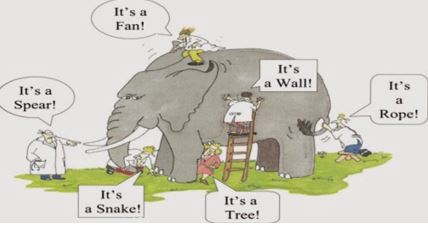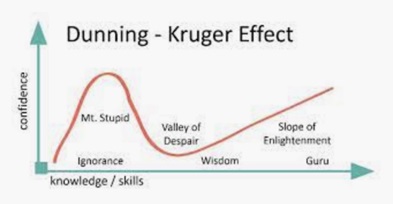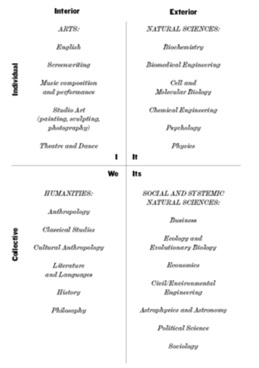|
TRANSLATE THIS ARTICLE
Integral World: Exploring Theories of Everything
An independent forum for a critical discussion of the integral philosophy of Ken Wilber
 Dr. Joseph Dillard is a psychotherapist with over forty year's clinical experience treating individual, couple, and family issues. Dr. Dillard also has extensive experience with pain management and meditation training. The creator of Integral Deep Listening (IDL), Dr. Dillard is the author of over ten books on IDL, dreaming, nightmares, and meditation. He lives in Berlin, Germany. See: integraldeeplistening.com and his YouTube channel. He can be contacted at: [email protected] Dr. Joseph Dillard is a psychotherapist with over forty year's clinical experience treating individual, couple, and family issues. Dr. Dillard also has extensive experience with pain management and meditation training. The creator of Integral Deep Listening (IDL), Dr. Dillard is the author of over ten books on IDL, dreaming, nightmares, and meditation. He lives in Berlin, Germany. See: integraldeeplistening.com and his YouTube channel. He can be contacted at: [email protected]
SEE MORE ESSAYS WRITTEN BY JOSEPH DILLARD Toward PolycentrismPart I: How Multiple Perspectives Create our IdentityJoseph Dillard
Our identity is formed and maintained largely by the different perspectives we encounter in life. These in turn generate our sense of control, life direction, meaning, and our relationships with others. This essay series explains varieties of this fundamental and adaptive ability and how limitations in how we approach perspectives can go wrong, creating undue personal suffering and societal collapse. We build our identities out of experiential multi-perspectivalism
To doubt the scripted perceptions that I hold most central to who I am is to doubt my reality, to discount my experience, and to threaten my identity.
Multi-perspectivalism, as discussed here, does not refer to the epistemology of the Christian philosophers John Frame and Vern Poythress, but rather is an outgrowth of Ken Wilber's understanding of perspectivalism, which is itself an expansion of Jean Gebser's aperspectivalism.[1] While Frame's and Poythress' multi-perspectivalism justifies a variety of Christian metaphysics, that of Wilber justifies a variety of transpersonal idealism it calls “integral.” As we will explain below and in subsequent essays, cognitive multi-perspectivalism, which is what Gebser and Wilber address, is different from experiential multi-perspectivalisms, which can be prepersonal, personal, or transpersonal. Cognitive multi-perspectivalism is also different from polycentrism, a perspective which may or may not be integral and transpersonal. All of these perspectives are important and functional. We need them all. Problems arise when we are unaware of the existence and influence of one or another and fail to learn how to use and balance one or more of them. Experiential multi-perspectivalisms can also be sub-divided into phenomenological and non-phenomenological varieties. All of this starts developmentally with prepersonal multi-perspectivalism. Life is fundamentally experiential, on sensory and emotional levels, with a cognitive overlay. Those who doubt that their worldview is fundamentally prepersonal and experiential need only look at how divorce, the death of a loved one, or the loss of a leg, arm, or eye affects them. While we are born with genetically-derived preferences, as children we learn who we are and what we are supposed to do by taking on the behaviors, words, and preferences of those around us. This is much more than what is generally thought of as role play; we build our identity through continuously experiencing multiple perspectives and assimilating them to one degree or another. This is called “experiential multi-perspectivalism,” and to the extent that it occurs outside our awareness, as a fundamental developmental adaptive process, it is prepersonal, functioning independently from choice, awareness, and identity. As we internalize the perspectives, attitudes, and behaviors of those around us, those introjections become our conscience, intuition, beliefs, and rationale for our affiliations. They become who we are, that is, who we think that we are, but not how others see us or how nature and life itself relates to us. Multiple perspectives, made up of these patterns of preference, words, and behaviors, are assimilated into one core identity which we use to orient, maintain control, and fulfill our needs.[2] As such, these internalized multiple perspectives not only form large portions of our identity but the vast majority of our worldview. They become who we are and who we think that we are. In addition to genetic predispositions, we are experientially and cognitively the multiple perspectives that we have become and identified with over the course of our lives.[3] Prepersonal worldviews largely evolve out of our awareness, automatically, as a core developmental process. We become multiple experiences because of our embeddedness in our families, society, and culture, not because we think about it or make conscious choices.[4] As we grow older and learn how to think, we conceptualize a worldview that is used to explain, rationalize, and justify our identity and provide a meaningful explanation for why we are alive, who we are, what we want to accomplish, and how we will relate to others. The very meaning of life is generated out of experiential multi-perspectivalism. When the identity created by our prepersonal experiential multi-perspectivalism and later justified by our thinking self is threatened, we typically feel we have to protect and defend it. Doing so is what Wilber has called “the Atman Project,” and he wrote an entire book by that name.[5] Many people have a deep-seated, knee-jerk reaction to this formulation. That is because it is threatening to experience our identity as random or scripted, because it challenges both our sense of control and our freedom to choose and frame meaning in our lives. Subsequently, we generally prefer to believe some sort of destiny, karma, fate, or predestination is responsible for our name, gender, race, religion, culture, language, values, preferences, and society into which we were born. We create reasons why we “had” to become who we are and do what we have done. These reasons justify our very existence and create our life's meaning. Therefore, the protection of our worldview is fundamental not only to safety and security, but to our very identity. Prepersonal experiential multi-perspectivalism is important because it is the bedrock of how we think about and experience our identity, not because it is our identity. The perspectives that we assimilate, particularly in our youth, generate the majority of the worldview which will shape not only who we are but our choices. As we shall see, to the extent that our worldview is delusional and fails to mirror reality in ways that are reasonably accurate, it generates misperception, bad decision-making, and suffering. At its worst, it generates murder and suicidality.
The relationship of multi-perspectivalism to integral
Prepersonal experiential multi-perspectivalism needs to be distinguished from cognitive multi-perspectivalism and polycentrism. A personal multi-perspectivalism, in contrast to a prepersonal one, generates a worldview that takes multiple worldviews into account from a vantage point of group, rational, or idealistic perspectives. The “group” perspective generates an identity that we are confident is autonomous and authentic that is in fact groupthink. The “rational” perspective generates an identity that we are confident is rational and reasonable, but in fact exists to justify and rationalize a prepersonal, pre-rational identity that is in fact delusional. The “idealistic” perspective generates an identity that we are confident is egalitarian, pluralistic, transpersonal, and spiritual when in fact it is elitist, exceptionalistic, and hubristic. Cognitive multi-perspectivalism involves the ability to suspend one's own worldview or perspective and then to take that of others. The classical example is that of the Indian story of “The Blind Men and the Elephant.”
 Exceeding stiff and strong, Though each was partly in the right, And all were in the wrong! John Godfrey Saxe Cognitive multi-perspectivalism is also metacognitive in that it includes the ability to objectify thought and emotion and think about thinking.[6]

What is true is multiple and may be radically different from truth
Cognitive multi-perspectivalism bridges prepersonal and transpersonal perspectives while the prepersonal variety is pre-rational, built out of belief in lived experience. Cognitive multi-perspectivalism largely exists to justify prepersonal multi-perspectivalism, because that is the core and foundation of our identity and worldview. Cognitive multi-perspectivalisms chronically discount or ignore their indebtedness to prepersonal experiential multi-perspectivalism, largely because that recognition undermines the illusion of personal control. If I have built my identity out of a random experiential context, then basic assumptions about who I am and the meaning of my life are threatened. I can't have that.
Differentiating between cognitive and transpersonal experiential multi-perspectivalisms
The distinction between cognitive and experiential multi-perpectivalisms can be understood via an analogy to the Polish-American scientist and philosopher Alfred Korzybski's famous saying, “The map is not the territory.” Korzybski held that many people do confuse maps with territories, that is, confuse conceptual models of reality with reality itself. Alan Watts made the same point in a less abstract, more consumable way: “The menu is not the meal.” You have to be really desperate to want to eat the menu. Wilber was quite aware of this distinction and recognized that Integral AQAL was a map, not the territory. Changing our map doesn't change the territory. That is, changing our beliefs and worldview doesn't change reality, but it can generate a closer, more adaptive approximation to it. This problem is demonstrated by a baked-in cognitive bias called “the Dunning Kruger Effect,” in which we do not know what we do not know. The problem is that not knowing what we don't know generates false confidence that can look and feel authentic, both to ourselves and to others.[7] Think of Donald Trump and his followers.  While cognitive multi-perspectivalism involves the consideration of multiple approaches, values and experiences, including those which conflict with our own, it does not require the surrendering of our own perspective or identification with some foreign worldview. One can understand multiple alternative perspectives without doing either of these things. All that is required is analysis: the ability to objectify some worldview and evaluate its nature, strengths, and weaknesses. The scholastic acquisition of knowledge is a pursuit via cognitive multi-perspectivalism, while trade school and experiential approaches to learning, including simply living, are multi-perspectival in a way that is mostly experiential and much less analytical. Most of life is immersion in prepersonal experiential multi-perspectivalism. Those lessons and truths that we hold most dear are of this variety. Cognitive multi-perspectivism shows up in multi-disciplinary studies, like Jared Diamond's “Guns, Germs, and Steel,” which combines history, geology, horticulture, animal husbandry, climatology, archaeology, and anthropology.[8] An economic cognitive multi-perspectivalism is exemplified by this statement by John Mackey, CEO of Whole Foods: From an investor's perspective, the purpose of the business is to maximize profits. But that's not the purpose for other stakeholders—for customers, employees, suppliers, and the community. Each of those groups will define the purpose of the business in terms of its own needs and desires, and each perspective is valid and legitimate.[9] An integral multi-perspectivalism considers worldviews from at least the five perspectives identified by Ken Wilber: states, quadrants, stages, lines, and types.[10] Quadrants themselves are cognitively multi-perspectival in that they organize all branches of knowledge and experience into extremely useful and insightful interdependent relationships.

Diagram derived from Integral Ecology by Esbj�rn-Hargens and Zimmerman
Wilber's AQAL is a form of cognitive multi-perspectivalism with a good dose of transpersonal experiential multi-perspectivalism, in the form of mystical experience, thrown in. Wilber's variety of cognitive multi-perspectivalism recognizes and objectifies prepersonal, personal, and transpersonal developmental stages and is associated with trans-rational cognition, which Wilber calls either “vision-logic” or “integral-aperspectival,” referring to both a type of cognition and a proposed, post-personal developmental stage.[11] Integral and transpersonal multi-perspectivalisms can be cognitive, experiential, or both. We have seen that multi-perspectivalism does not have to be transpersonal. It can be prepersonal, like children's role play, or personal experiential multi-perspectivalism, like when we leave our habitual worldview and take up a radically different one, as may happen when we move to a foreign country. Integral cognitive multi-perspectivalisms are not necessarily polycentric either, although those who hold them are commonly convinced that this is the case. This is because they have had experiences, such as mystical or near death experiences, that validate for them the transpersonal nature of their cognitive multi-perspectivalism. Integral multi-perspectivalism, as understood in this essay, takes Wilber's five AQAL perspectives into account as well as the mystical variety of transpersonal experiential multi-perspectivalism. Integral multi-perspectivalism is differentiated from polycentric multi-perspectivalisms, in three ways. First, mystical experience is one developmental line, called by Wilber “spiritual intelligence.” Line development is not stage development; because one is adept at transpersonal mysticism does not necessarily imply or automatically translate into higher stage development. Secondly, integral experiential multi-perspectivalism remains rooted in what I call “psychological geocentrism” and its grandiose extrapolation, “psychological heliocentrism.” Thirdly, integral multi-perspectivalism, as formulated by Wilber and more generally by the integral community in general, as of 2022, does not contain either an understanding or a methodology that grows polycentrism. I will explain these terms in the second essay in this series. In my multiple decades of working with Wilber's integral model I have never run across anyone who differentiated between cognitive and experiential multi-perspectivalism or among prepersonal, personal, and transpersonal experiential multi-perspectivalisms. The lack of recognition of these important and basic distinctions leads people to assume that understanding multiple perspectives and experiencing them are the same or, more to the point, that if one is cognitively multi-perspectival that they are also polycentric in their worldview and identity. There are genuine personal and collective prices to be paid from not knowing this difference and not learning to practice polycentrism. The personal price is that we imagine, like the blind men and the elephant, that if we understand alternative and even conflicting worldviews we therefore understand and correctly perceive the elephant of the world. We don't know what we don't know and so conclude, following the cognitive bias of the Dunning-Kruger Effect, that our perspective is an adequate portrayal of reality. The result is that we impede our personal development because we do not objectify our own groupthink echo chamber, our rational justifications, or our elitist idealism by immersion in worldviews that operate from very different foundational assumptions. The fundamental Achilles heel of prepersonal and personal experiential as well as integral cognitive multi-perspectivalisms is that we only know our experience and understanding of an elephant. We generalize our perspective, regardless of how inclusive and experientially validated it is or is not, to believe we have a correct understanding of the entirety of the animal. Again, that's the Dunning-Kruger Effect, and it's a baked-in “nature-based,” cognitive bias. We also have a bias for the status quo and subsequently discount how the disruption of our worldview by death or social chaos is likely to completely upend both our sources of meaning and how we define ourselves. Here's a concrete example: when we fall in love with someone we easily mistake our perspective of who they are for who they actually are. We think we know the beloved, that is, that we are both experientially and cognitively multi-perspectival in relationship to them, and we make a commitment to the relationship based on our certainty that we know them, and therefore are confident of our compatibility. Time passes. Despite studied denial, the reality finally sinks in that who our partner in fact is, is different than who we thought they were, and those differences matter. Conflicts between our worldview, who we think our partner is, on the one hand, and reality, that is, who they are, independent of our perception, worldview, assumptions, expectations, beliefs, hopes, and intentions regarding them, on the other, have to be addressed and reconciled in some way with our identity and our core worldview. If they are not, or cannot be, the cognitive dissonance can easily lead to acrimony and divorce. While cognitive multi-perspectivalism provides both objectivity and the ability to integrate different worldviews, thereby expanding our own, it stops short of providing objectification from our own worldview. It does not imply integration around our unique life compass, as differentiated from integration around our familial and socio-cultural scripting, on the one hand, or our own conception of individual, autonomous self-interest, on the other. This is why integralists, despite their high intelligence and compassion, can be highly resistant to reason, information, and facts that challenge their worldview. Our worldview, whatever it is, has adaptive, survival value or we wouldn't hold it; it validates and justifies who we are and why we do what we do. What we are confident we know, as cognitive multi-perspectivalism, often excludes critical perspectives that make a huge difference in happiness and the arc of our life course. This is true equally for us as individuals and the entire societies we inhabit, which collectively exhibit core aspects of our worldview. The collective price that we pay for confusing cognitive multi-perspectivalism and polycentrism is that social and civilizational development are impeded. Collective, scripted worldviews, like a religion's view of deity or a nations view of its adversaries, are unlikely to be relativized or contextualized among other legitimate perspectives. Instead, internalized groupthink is assumed to be true because it has been assimilated to our sense of who we are and validates our identity. A self-validating narrative is substituted for reality. The elephant really is like a tree or a snake because that's my experience of the elephant. Covid really is a conspiracy; Russia really is the aggressor while Ukraine and human rights are the victims in Ukraine. China really is authoritarian.[12] Evolution really is teleologically driven. Science really is all I need. To doubt the scripted perceptions that I hold most central to who I am is to doubt my reality, to discount my experience, and to threaten my identity. While there typically are significant individual differences and variations in our personal worldview from those of our peers, if we were able to know how many millions of people share our worldview, our thoughts, doubts, and feelings it would at first amaze us and then perhaps threaten our sense of individuality and autonomy. How many other teenagers right now are deciding “autonomously” to smoke, get a tattoo, or a piercing? While we differentiate ourselves from the other sheep in the flocks which we inhabit, members of those groups and so benefit or pay the price, depending on the degree of respect others have for our groups. We see that in our accountability for the wars of choice of our leaders in the eyes of opponents. Palestinians know full well that on the whole, individual Israelis support the genocidal policies of their government. Differentiating ourselves in significant ways from our in-groups can carry a heavy price. If we threaten the worldview of our in-groups, ostracism or other severe punishments are common. We may face censorship if we violate rules of “hate speech” or other social and cultural conventions.
Conclusion
The only way to get around this dilemma is to become and ask the “elephant” itself. What is its perspective? Does it concur that we empathize with and respect it? To further reduce the very likely possibility that we are only telling ourselves what we want to hear, this process of becoming and asking other perspectives and requesting verification has to be repeated multiple times. This is a variety of polycentrism, which we will discuss further on in this essay series. In the next essay in this series we will differentiate three fundamental varieties of worldview: psychological geocentrism, psychological heliocentrism, and polycentrism and explain how these distinctions control the destiny of both our self-development and the collectives to which we belong.
NOTES
|